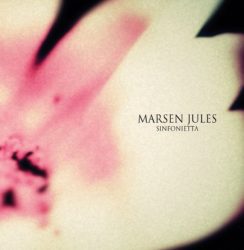When referring to a “Symphony“, the common reference is to “an extended musical composition in Western classical music, most often written for orchestra – symphony and chamber orchestras, concert bands, chamber ensembles, organ, piano, choir, or combinations of these resources.”
Pythagoras is accredited for “discovering the simple fact that the pitch of a musical note depends upon the length of the string which produces it. This allowed him to correlate the intervals of the musical scale with simple numerical ratios. His discoveries in the fields of music and astronomy led him to his most profound realisation, namely, ‘The Harmony of the Spheres’, wherein he proposed that the planets and stars moved according to mathematical equations, which corresponded to musical ratios, therefore producing a symphony.”
Aristotle wrote: “[the Pythagoreans] saw that the … ratios of musical scales were expressible in numbers [and that] .. all things seemed to be modelled on numbers, and numbers seemed to be the first things in the whole of nature, they supposed the elements of number to be the elements of all things, and the whole heaven to be a musical scale and a number.”
(quotes taken from ‘Ancient Wisdom‘ website)
If a ‘symphony‘ is “music of the spheres, embracing the concept of an ethereal harmony”, then the “Sinfonietta” must represent a miniature model of the universe.
And that is exactly what Marsen Jules‘ new album conveys: an interplay of orchestral harmonics, a celestial reflection of universal movement in which the sense of time is completely irrelevant.
“Sinfonietta” is a 45 minute composition that has neither beginning nor end, and hardly any perceptible progression: it just ‘is’.
There is a peaceful, natural (or even ‘cosmic’ if you prefer) harmony within the orchestral (yet synthetic) sounds.
For the impatient listener these 45 minutes may prove to be too long.
But for the listener who is receptive to what Martin Juhls tries to capture here, the piece may not nearly be long enough. I can in fact be played on repeat without losing its power.
“Sinfonietta” is released barely a month after the release of a different Marsen Jules album: “Marsen Jules at GRM“, and it’s interesting to note the similarities between these two albums as well as the differences.
“At GRM” was created during a two week residency in the legendary GRM-Studios in Paris in 2009. The “Groupe de Recherches Musicales“ is an institute for the exploration of electroacoustic music, founded in 1958 by composer Pierre Schaeffer.
“Especially these ideas of defining every acoustic event as possible music and the approach to explore the individual universe of such a sound, have always been a big inspiration for the music of german Martin Juhls.
For the two tracks created at GRM Jules dives deeply into the level of subatomic sound-particles. Clusters of string crescendos emerge from a nearly psychoacoustic sound-wall of warm drones in which they disappear with ultra long fade outs and reverbs.”
Compared to the bright and uplifting sounds of “Sinfonietta” , the stretched immersive drones of “at GRM” are rather dark and very, very minimalistic.
In a way, the albums relate to each others like day relates to night.
But they also have a lot in common: in both albums, the notion of time is completely irrelevant. It is only the sound that is important.




true!
Hi Peter, yes I agree, but regarding “It is only the sound that is important.” I have to admit: Especially the disolvement of time is super important in my music. It is very relevant and a main theme in my music. (-;
You’re absolutely right of course… Music can’t happen without time.. There a slight difference between “the notion of time is irrelevant” and “time is irrelevant”….
…But actually [you] got something wrong. Having the impression that time is not relevant doesn´t mean it´s not an important part of the composition. It is a very important thing about music, that it can´t happen without time. That´s huge a difference to a picture for example.